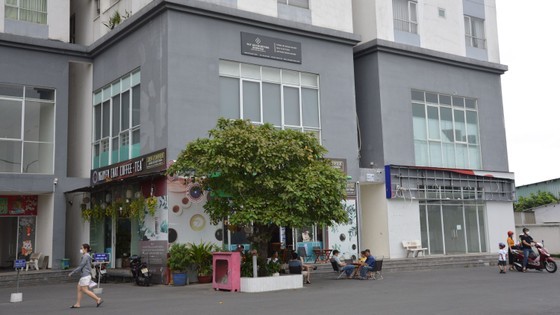Social housing development in dire need of legal issue addressing
The supply for social housing in Vietnam, especially the Southeast region, is surplus thanks to promoting policies from the Government. The obstacle is legal issues. By addressing them, more investors will feel more encouraged pouring money here.
 |
|
A corner of Zen Tower social housing apartment building in Thoi An Ward, District 12, HCMC (Photo: SGGP) |
Along with the promoting policy to construct 1 million social housing apartments (in compliance with Decision No.338/QD-TTg by the Prime Minister on April 3, 2023), the credit package worth VND120 trillion (US$5.12 billion) for both apartment buyers and social housing investors was announced, signaling the prime time to boost the growth of reasonably priced accommodation.
At the 2023 Annual Meeting of Shareholders of Nam Long Group this April, President Nguyen Xuan Quang of the Directors Board informed that Nam Long Group has realized the high demand of social housing in various areas nationwide, and is working with the corresponding local authorities to build 20,000 below-market-price apartments for laborers in need in the near future.
Based on existing resources, including the land one of 100ha in the Southeast region, Thang Loi Group (sited in HCMC) plans to allocate 30ha for social housing development. President of its Directors Board Duong Long Thanh said that Thang Loi Group has already invested in various housing segments, and is hoping to build 10,000 social housing apartments by 2030.
Becamex IDC in Binh Duong Province also expects to construct 20,000 social housing apartments in Bau Bang District, Ben Cat Town, Thuan An City, Thu Dau Mot City in 2023, with an investment of VND9.5 trillion ($405 million).
The biggest concern of the real estate market, including the social housing segment, at the moment is legal procedures. Deputy General Director Van Thanh Huy of Becamex IDC said that although social housing development is a governmental policy, each locality introduces its own policies, leading to various legal-related obstacles to businesses and investors.
“Stimulus packages by the Government must be smoothly delivered to those in need with specific supporting policies for laborers. The loan should be a 25-to-35-year term for people to access social housing”, proposed Mr. Huy.
Meanwhile, General Director Ngo Quang Phuc of Phu Dong Group stressed that the land resource that is legally approved for this purpose is more important. “In reality, an enterprises must wait for a long time to complete necessary legal procedures, which severely affects its operation costs”, added Mr. Phuc. He suggested that the local authorities should prepare the land resource before calling upon investments from businesses in order to simplify needed procedures.
In 2022, the HCMC Department of Construction cooperated with several investors to hold groundbreaking ceremonies for five social housing building projects and one accommodation project for workers in the residential areas of Nguyen Son (Binh Chanh District), Tan Thuan Tay (District 7), Phu Huu Ward, Linh Trung II Export Processing Zone, Long Truong Ward (all in Thu Duc City).
Sadly, after that promising ceremony, not much work has been done since most of those projects are still trying to finish legal procedures (progress extension permission, assessment of the feasibility report for construction investment, adjustment of construction planning at the ratio of 1/2,000).
Head Pham Dang Ho of the Housing and Real Estate Market Development Office (HCMC Construction Department) informed that legal issues in social housing projects lie in the influences of so many laws and regulations.
To address this, it is necessary to re-introduce a specific instruction for steps to finish a social housing project in order to easily monitor the progress, along with rules for the cooperation among related state agencies, departments. Particularly, HCMC proposed that ministries and central state agencies release more needed mechanisms and policies, including the approval of investments for projects eligible to increase their planning target by 1.5 times without the need to wait for zone planning adjustments, or the approval to rearrange social housing areas in a commercial project.








